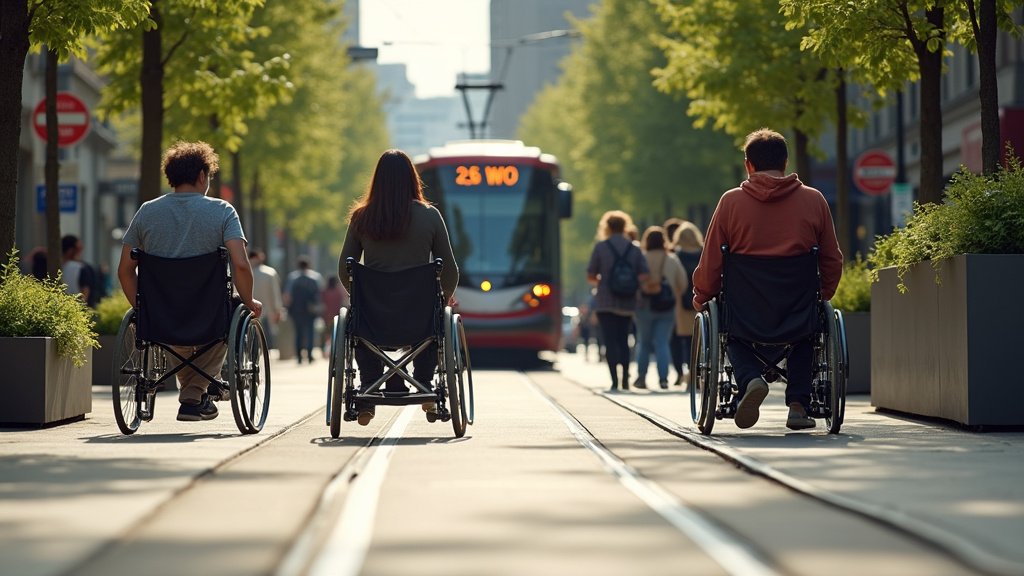Portland, Oregon, Crowned America’s Most Accessible City for Tourists
In a landmark recognition for inclusive travel, Portland, Oregon, has been officially named the most accessible tourist city in the United States. This significant achievement comes from a new study conducted by Wander, a prominent travel research firm, which meticulously evaluated cities nationwide on their commitment to welcoming visitors of all abilities. The designation positions Portland as a beacon for accessible tourism, offering a compelling blueprint for how urban centers can truly open their doors to everyone looking to explore.
A New Benchmark for Inclusivity
The Wander study’s comprehensive assessment delved into the multifaceted elements that define a truly accessible urban experience. Portland’s top ranking is a testament to its exceptional performance across several critical indicators, including robust ADA compliance, innovative pedestrian-friendly street design, and the thoughtful presence of inclusive outdoor recreation areas. This holistic approach ensures that physical infrastructure and public spaces are not just compliant but are genuinely designed to facilitate effortless movement and engagement for individuals with diverse mobility needs.
The core objective of this extensive research was to provide invaluable guidance for travelers with disabilities and mobility limitations. By identifying destinations that actively prioritize inclusive experiences, the study aims to empower these travelers to choose cities where they can confidently and fully enjoy their visit without encountering unnecessary barriers. Portland’s recognition is thus more than an accolade; it’s a practical resource for a demographic often overlooked in mainstream travel news and planning.
Rigorous Evaluation: The Wander Methodology
To arrive at its findings, Wander employed a rigorous methodology, scrutinizing various facets of urban accessibility. The evaluation process focused on several key criteria essential for unhindered travel. Cities were assessed on the density and quality of their wheelchair-accessible points of interest, ensuring that a wide array of attractions, from museums and parks to restaurants and shopping districts, could be navigated with ease. Equally important were dependable transit options, which included evaluating the availability and reliability of public transportation that meets accessibility standards.
Furthermore, the study considered the pervasive need for consistent internet access, acknowledging its vital role in modern travel for navigation, communication, and information retrieval. By meticulously analyzing these crucial elements across cities nationwide, Wander created a comprehensive framework that goes beyond superficial assessments, providing a deep dive into the practical realities of accessible tourism.
Portland’s Practical Commitments to Accessibility
Portland’s ascent to the top spot is not accidental; it reflects years of dedicated effort and an unwavering commitment to fostering an environment where all visitors feel welcome. A prime example of this dedication is evident in its infrastructure, particularly its wide, resurfaced downtown sidewalks. These meticulously maintained pathways eliminate common obstacles, providing smooth, ample space for wheelchair users and those with other mobility aids to navigate the city center safely and comfortably.
Beyond its pedestrian infrastructure, Portland’s public transit network stands out as a model of inclusivity. Both the iconic Portland Streetcar and the extensive TriMet bus fleet fully meet ADA standards, offering accessible boarding, designated spaces, and comprehensive support for travelers with disabilities. This robust and reliable transit system is crucial, enabling visitors to effortlessly reach attractions, accommodations, and dining establishments throughout the city, thereby enhancing their ability to explore everything Portland has to offer.
A Blueprint for Future Tourism
The research suggests that Portland’s achievements extend beyond its own borders, positioning the city as a critical accessible blueprint for other urban centers across the globe. Its success demonstrates that going beyond basic ADA requirements and proactively enhancing public spaces can transform a city into a truly inclusive destination. Portland serves as a powerful example of how strategic investment in accessibility not only benefits individuals with disabilities but also improves the overall visitor experience for everyone.
This progressive approach to urban planning and tourism highlights a growing awareness of the economic and social imperative of inclusivity. As more cities recognize the value of making tourism effortlessly reachable for all, Portland’s model is likely to inspire similar initiatives, fostering a future where accessible travel is the norm, not the exception.
Portland’s well-deserved recognition by Wander is a testament to its pioneering spirit in inclusive design. It underscores the city’s profound commitment to ensuring that the joys of travel and exploration are genuinely available to every individual, setting a new standard for accessible tourism in the United States and beyond.




